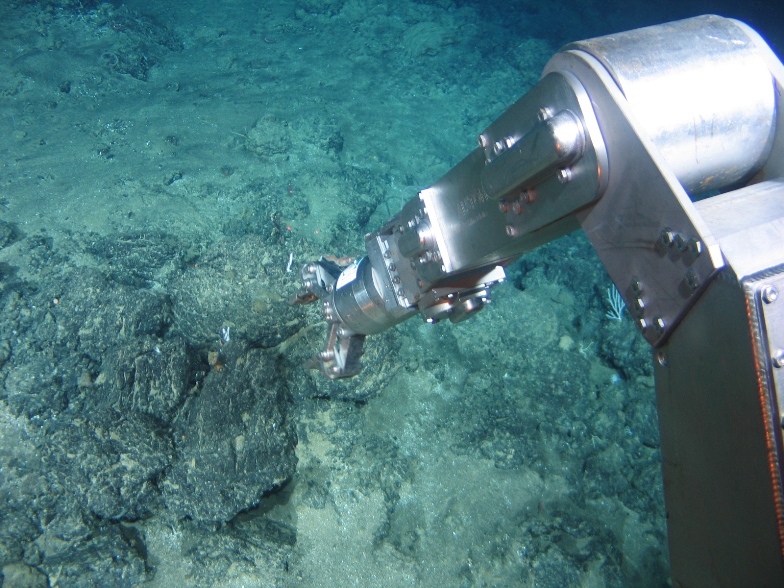Looking At Seabed Mining Around The World
In his response to the Premier’s address earlier this week, Opposition Leader Marc Bean proposed developing our Exclusive Economic Zone for seabed mining, which he said was a billion dollar a year industry.
A relatively new industry which involves extracting minerals, metals and other commodities from the ocean floor, the first commercial seabed mining operation got underway last year.
Mr. Bean said, “Developing our Exclusive Economic Zone for Sea-Bed mining [a billion dollar a year industry], Aquaculture, and Off-Shore Fishing, to create new jobs, diversify our economy, and create new revenue streams.”
In 2012 Canadian firm Nautilus Minerals was granted a 20-year licence by the Papua New Guinea government to commence the world’s first commercial deep sea mining operation, which aims to extract gold and copper from the floor of the Bismarck Sea.
The company estimates that the 30-month first phase of the mining will bring $142 million in benefits to the Papua New Guinea economy, with a plan to employ 70% of the project’s staff from the country within three years.
Animation from Nautilus Minerals showing the process of mining the seabed:
Nautilus Minerals said it plans to grow its tenement holdings in the exclusive economic zones and territorial waters of Papua New Guinea, Fiji, Tonga, the Solomon Islands, Vanuatu and New Zealand as well as other areas outside the Western Pacific.
The UK is one of the nations starting to get into seabed mining, with a report from the Guardian saying UK Prime Minister David Cameron “pledged to put Britain at the forefront of a new international seabed mining industry, which he claimed could be worth £40bn to the UK economy over the next 30 years.”
The UK Department for Business, Innovation and Skills, in partnership with UK Seabed Resources, obtained a licence and contract to explore a 58,000 sq km area of the Pacific Ocean for mineral-rich polymetallic nodules.
These tennis ball sized nodules, found approximately four kilometres beneath the ocean’s surface, can provide tonnes of copper, nickel, cobalt and manganese, as well as rare earth minerals.
Prime Minister Cameron said: “The award of this exploration licence to UK Seabed Resources is excellent news for British companies and British scientists, and the Government is extremely pleased to have supported it.
“The UK is leading the way in this exciting new industry which has the potential to create specialist and supply chain jobs across the country and is expected to be worth up to £40bn to the UK economy over the next 30 years.”
Photo from Nautilus Minerals showing their equipment working the seabed:
The International Seabed Authority [website] is the world’s regulatory body for deep seabed mining. The international organization was established under the 1982 United Nations Convention on the Law of the Sea.
International environmental organisation Greenpeace warns against sea bed mining saying: “As land-based minerals become depleted and prices rise, the search for new sources of supply is turning to the sea floor.
“This emerging industry, facilitated by advances in technology, poses a major threat to our oceans, which are already suffering from a number of pressures including overfishing, pollution, and the effects of climate change.
“Greenpeace demands that no seabed mining applications are granted, and that no exploration or exploitation takes place, unless and until the full range of marine habitats, biodiversity and ecosystem functions are adequately protected.”
A protest in New Zealand against seabed mining:
“Deep seabed mining could have serious impacts on the ocean environment and the future livelihoods and wellbeing of coastal communities,” continued Greenpeace.
“Only 3% of the oceans are protected and less than 1% of the high seas, making them some of the least protected places on Earth. The emerging threat of seabed mining is an urgent wake-up call.”
“Governments and industries seeking to exploit the oceans must recognise that with rights come responsibilities.”
A full brochure from Greenpeace on seabed mining can be read here [PDF].
Read More About
Category: All, Business, Environment, News, Politics
Comments (6)
Trackback URL | Comments RSS Feed
Articles that link to this one:
- Opinion Column On Future Of Marine EEZ Area | Bernews.com | October 22, 2013
- PLP: Deep Sea Mining Would Diversify Economy | Bernews.com | April 30, 2014



the last thing you want to do is wake up the volcano where sitting on top of.
As with everything you have to manage your resources responsibly. With BDA being so limited and dependent on foreign dollars, we would cut of our noses to spite our face if we didn’t consider some sort of industry that we can support ourselves. The critical factor is responsible management.
How well we doing on responsible management of the environment/resources so far Young Bermudian? Lets do a quick assessment; pollution and destruction of our cave systems (Tuckers Point), pollution of our ponds with heavy metals, no mandatory EIA requirement for mass developments even though we committed to them under the Environmental Charter 2001. Planning decisions being overturned by our own Ministers despite independent expert opinion recommending otherwise! So without the immediate ability to do a thorough assessment of the potential environmental impact of deep sea mining we would be cutting our nose off in spite of our faces if we allowed it to proceed! All resources are finite so believing that the extraction/use of one (which may or may not be there in any substantial quantities) is going to be our answers to all our prayers is shortsighted and naive! We need to get around this myopic greedy resource driven consumerist mentality before it truly is the end of us! We want to make the most of what we have lets start using all the arable land responsibly and start growing more food for ourselves – a simple small achievable step!
Man talk with forked tongue…one minute wants a Preserved Ecological Zone around the waters of Bermuda i.e. Sargasso Sea and the next minute wants to mine the sea bed to make Bermuda rich…WAKE UP BROTHA!